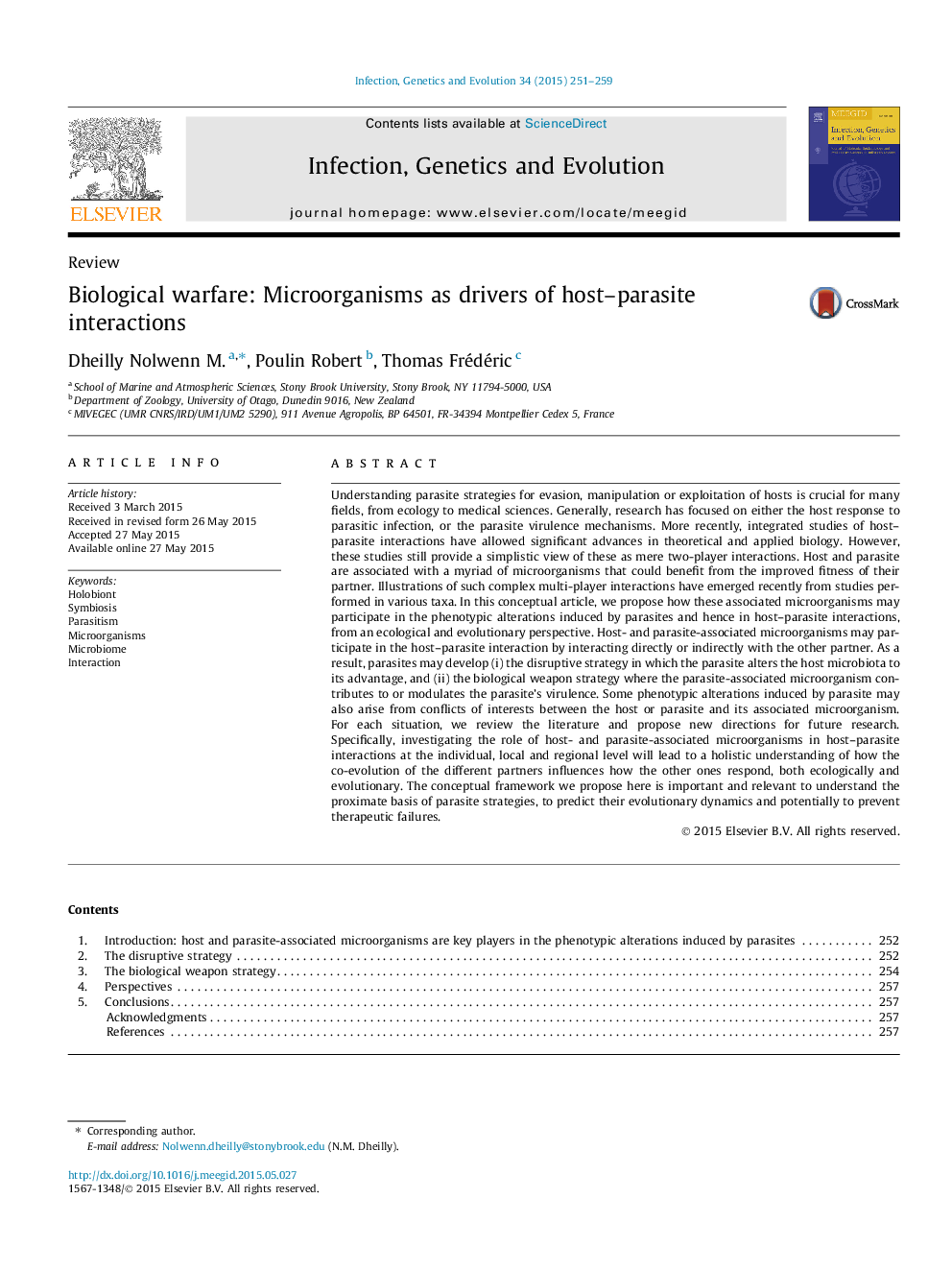| کد مقاله | کد نشریه | سال انتشار | مقاله انگلیسی | نسخه تمام متن |
|---|---|---|---|---|
| 5908954 | 1570169 | 2015 | 9 صفحه PDF | دانلود رایگان |
- Hosts and parasites are associated with a myriad of microorganisms.
- Parasite strategies can involve altering host symbionts to its advantage.
- Parasite symbionts can contribute to or modulate the parasite's virulence.
- Conflicts of interests between the symbionts and their hosts can influence the host-parasite interaction.
- Evolution of hosts and parasites should be considered within the framework of the hologenome theory of evolution.
Understanding parasite strategies for evasion, manipulation or exploitation of hosts is crucial for many fields, from ecology to medical sciences. Generally, research has focused on either the host response to parasitic infection, or the parasite virulence mechanisms. More recently, integrated studies of host-parasite interactions have allowed significant advances in theoretical and applied biology. However, these studies still provide a simplistic view of these as mere two-player interactions. Host and parasite are associated with a myriad of microorganisms that could benefit from the improved fitness of their partner. Illustrations of such complex multi-player interactions have emerged recently from studies performed in various taxa. In this conceptual article, we propose how these associated microorganisms may participate in the phenotypic alterations induced by parasites and hence in host-parasite interactions, from an ecological and evolutionary perspective. Host- and parasite-associated microorganisms may participate in the host-parasite interaction by interacting directly or indirectly with the other partner. As a result, parasites may develop (i) the disruptive strategy in which the parasite alters the host microbiota to its advantage, and (ii) the biological weapon strategy where the parasite-associated microorganism contributes to or modulates the parasite's virulence. Some phenotypic alterations induced by parasite may also arise from conflicts of interests between the host or parasite and its associated microorganism. For each situation, we review the literature and propose new directions for future research. Specifically, investigating the role of host- and parasite-associated microorganisms in host-parasite interactions at the individual, local and regional level will lead to a holistic understanding of how the co-evolution of the different partners influences how the other ones respond, both ecologically and evolutionary. The conceptual framework we propose here is important and relevant to understand the proximate basis of parasite strategies, to predict their evolutionary dynamics and potentially to prevent therapeutic failures.
Journal: Infection, Genetics and Evolution - Volume 34, August 2015, Pages 251-259
